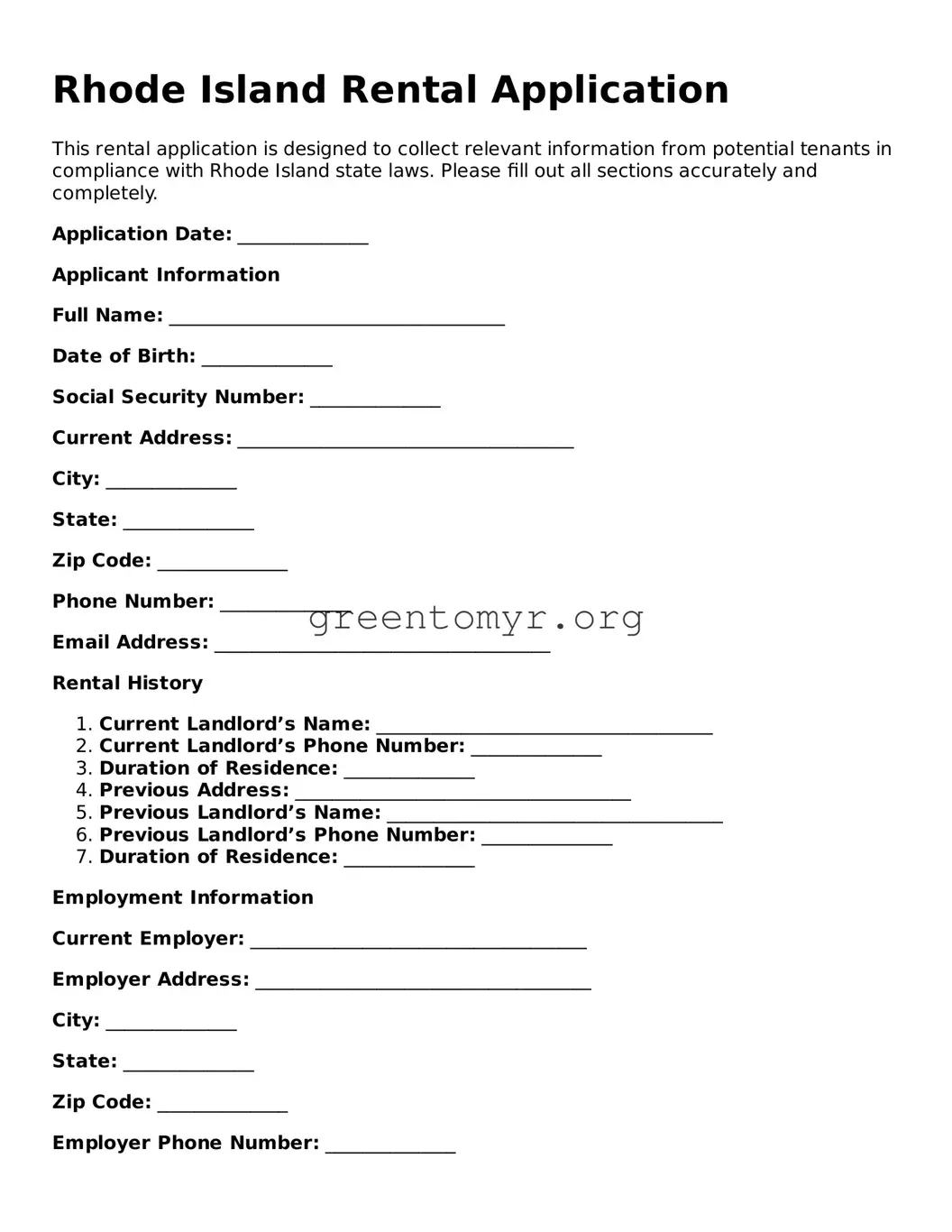Rhode Island Rental Application
This rental application is designed to collect relevant information from potential tenants in compliance with Rhode Island state laws. Please fill out all sections accurately and completely.
Application Date: ______________
Applicant Information
Full Name: ____________________________________
Date of Birth: ______________
Social Security Number: ______________
Current Address: ____________________________________
City: ______________
State: ______________
Zip Code: ______________
Phone Number: ______________
Email Address: ____________________________________
Rental History
- Current Landlord’s Name: ____________________________________
- Current Landlord’s Phone Number: ______________
- Duration of Residence: ______________
- Previous Address: ____________________________________
- Previous Landlord’s Name: ____________________________________
- Previous Landlord’s Phone Number: ______________
- Duration of Residence: ______________
Employment Information
Current Employer: ____________________________________
Employer Address: ____________________________________
City: ______________
State: ______________
Zip Code: ______________
Employer Phone Number: ______________
Your Job Title: ____________________________________
Length of Employment: ______________
Monthly Income: ______________
References
- Personal Reference Name: ____________________________________
- Relationship: ____________________________________
- Contact Number: ______________
Additional Information
Do you have pets? Yes / No
If yes, please describe: ____________________________________________________________
Have you ever been evicted? Yes / No
If yes, please explain: ____________________________________________________________
Authorization
I hereby authorize the landlord or their representative to verify any and all information provided in this application including, but not limited to, credit, employment, and rental history.
Signature: ____________________________________
Date: ______________
